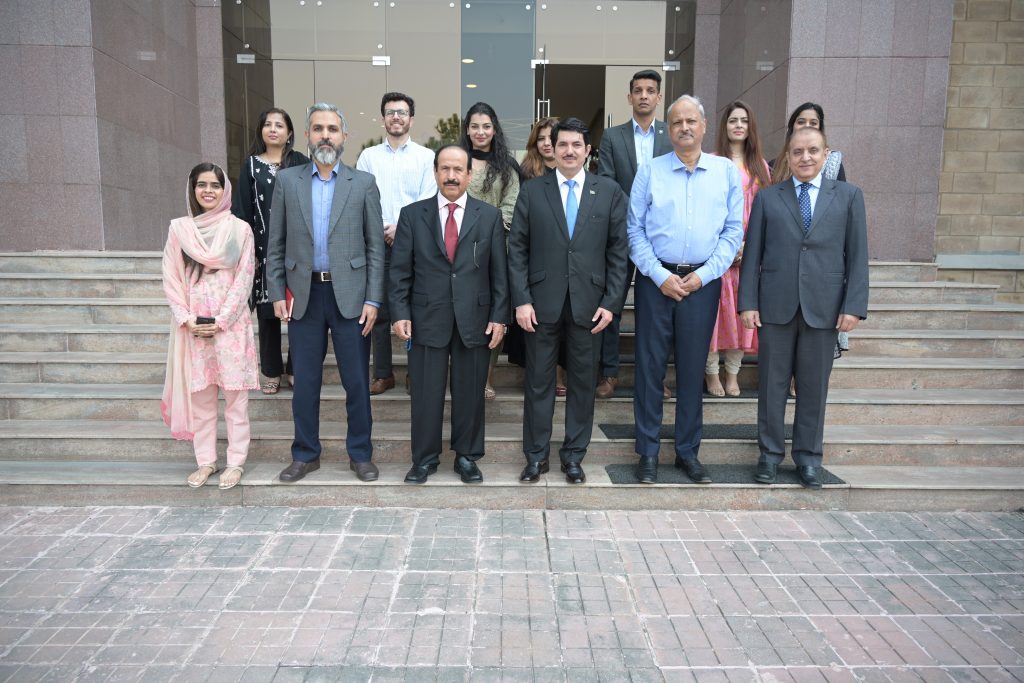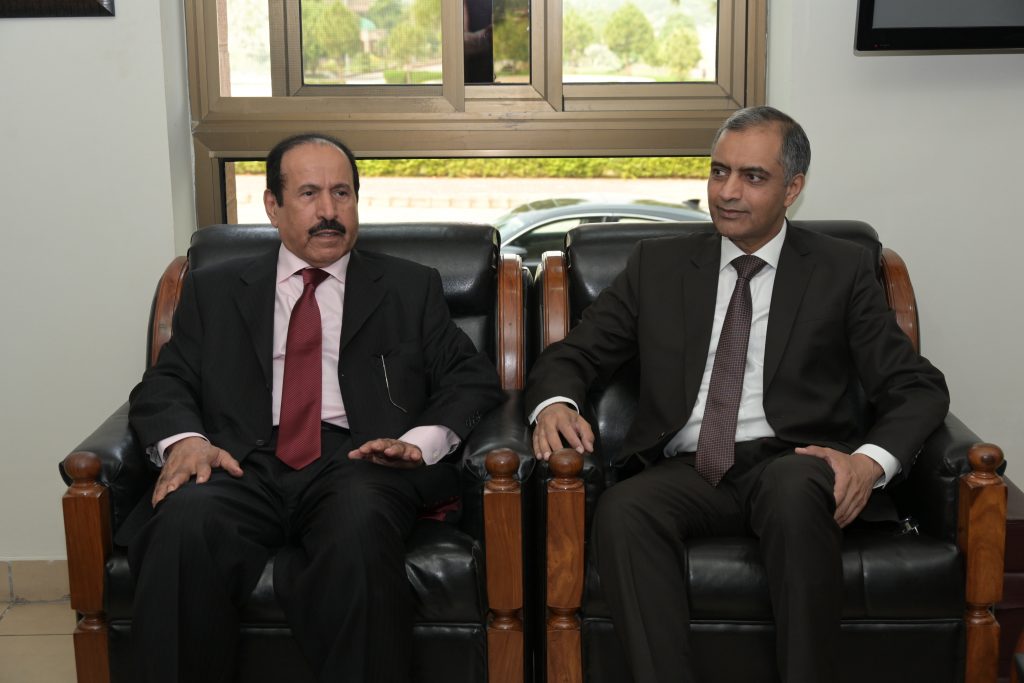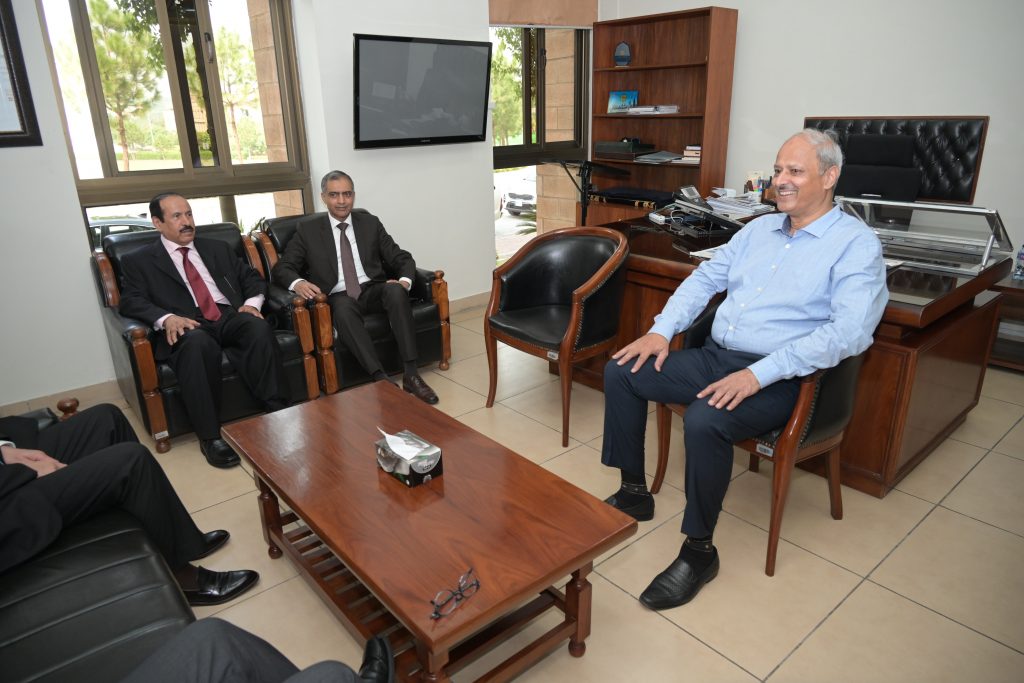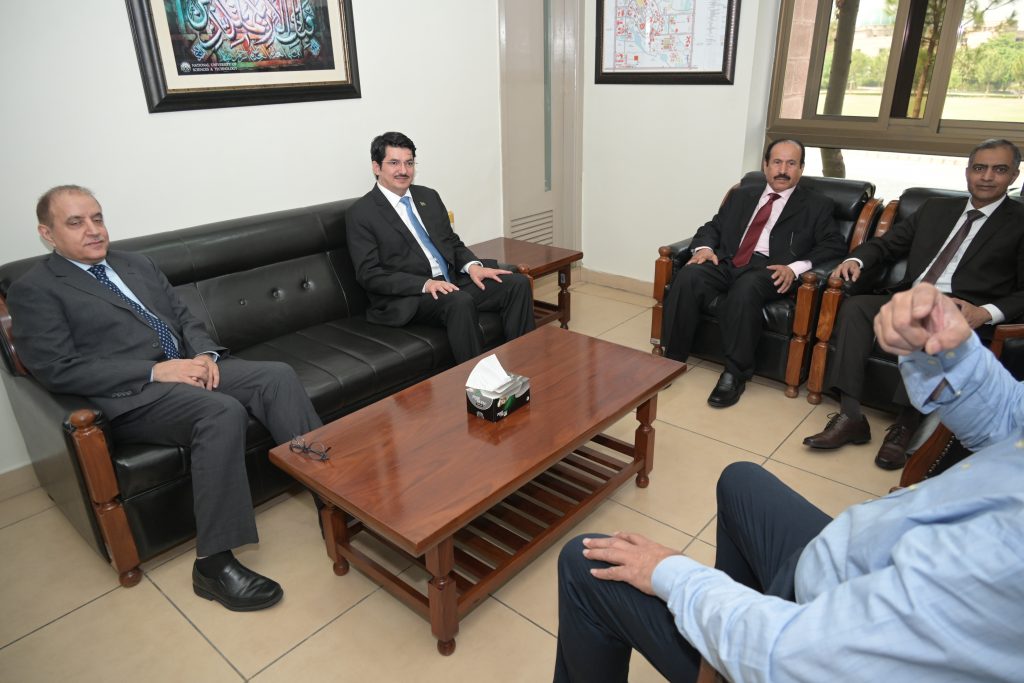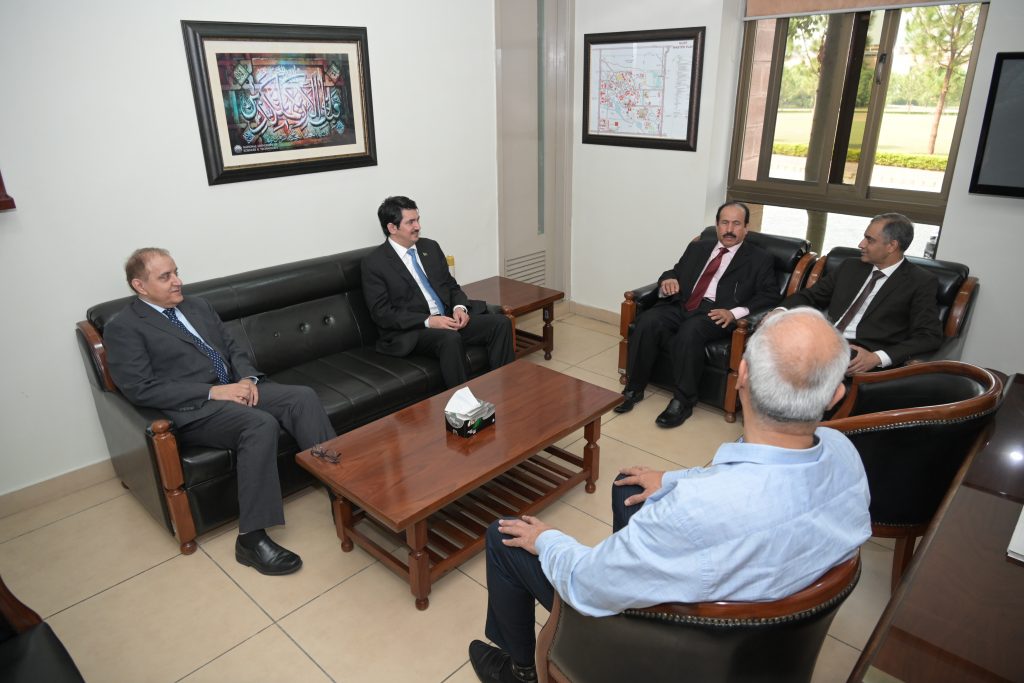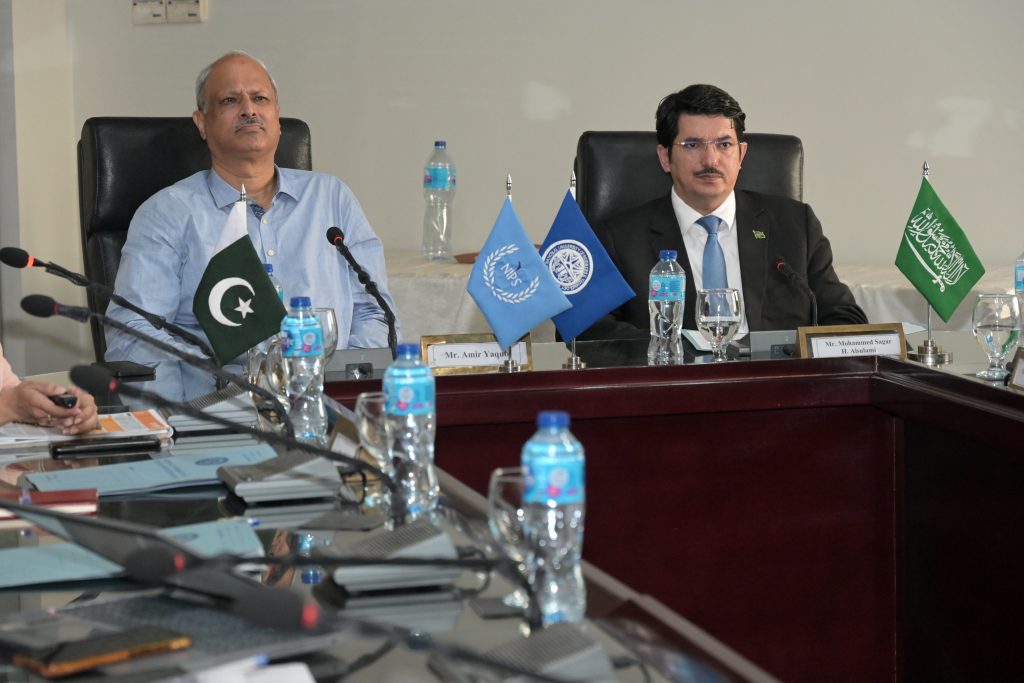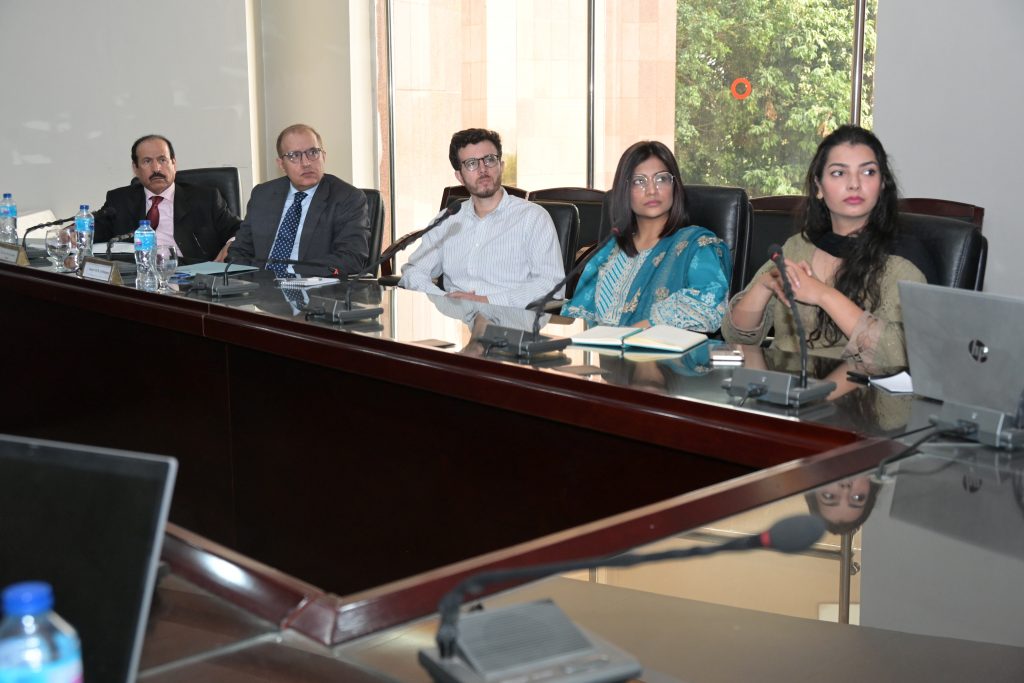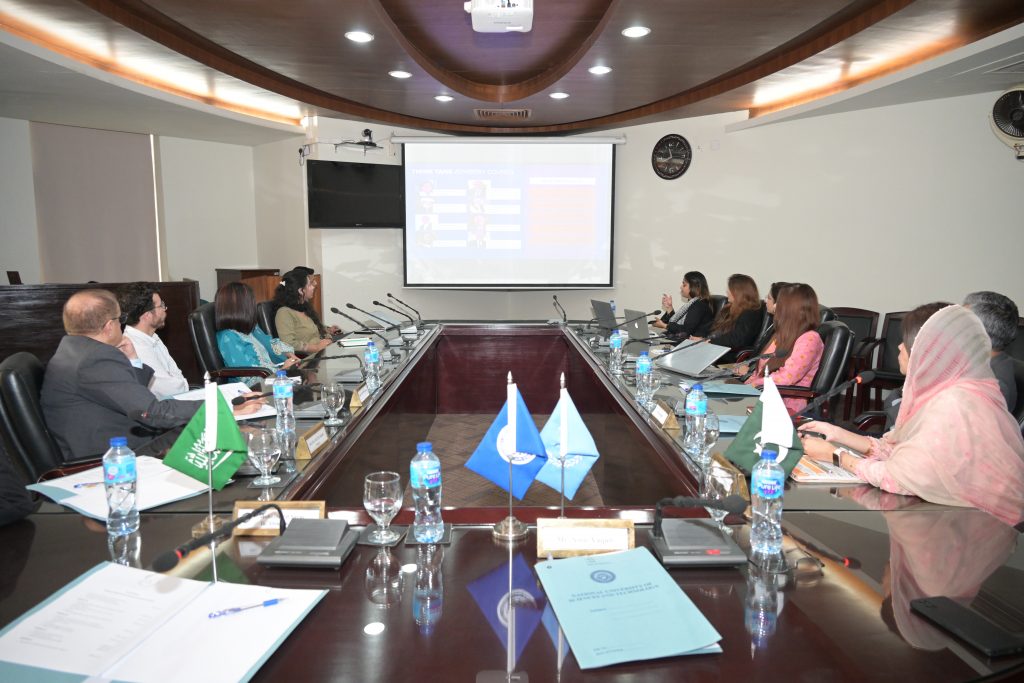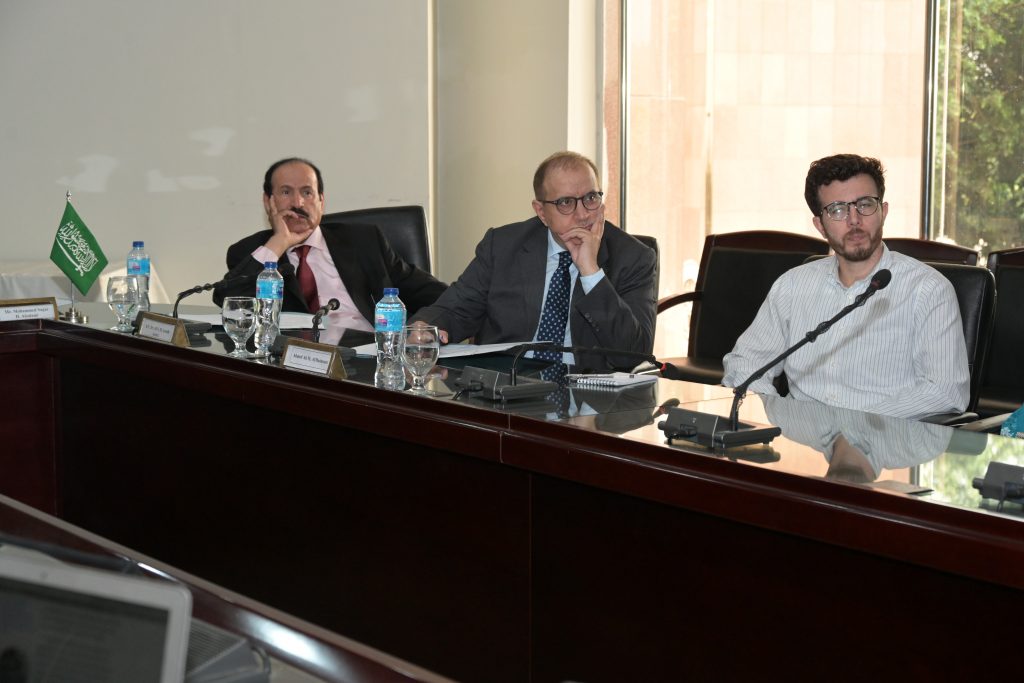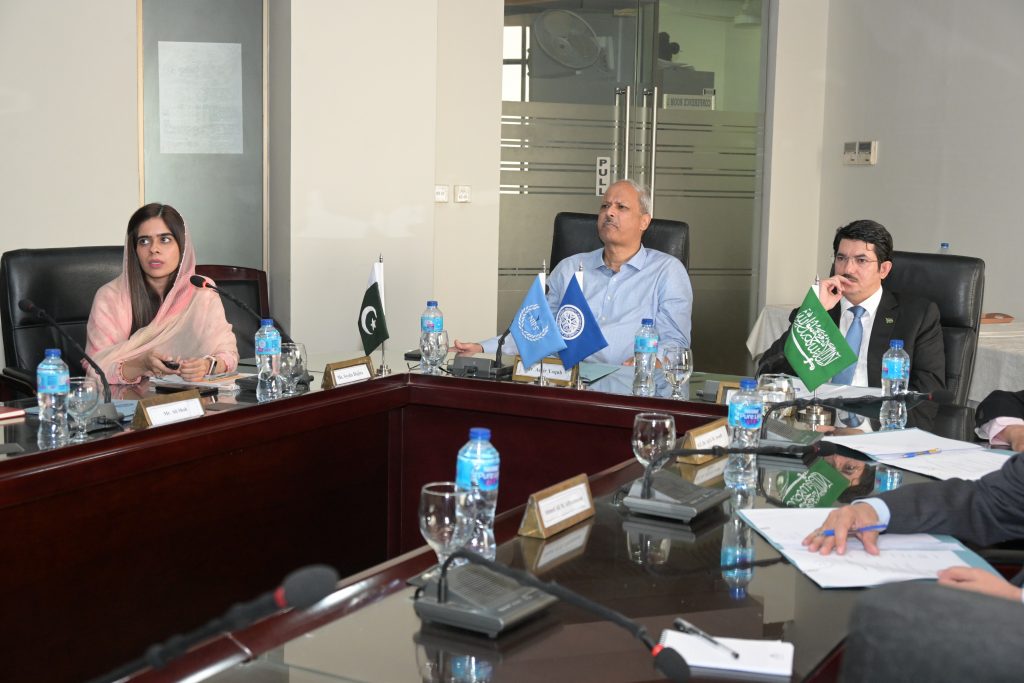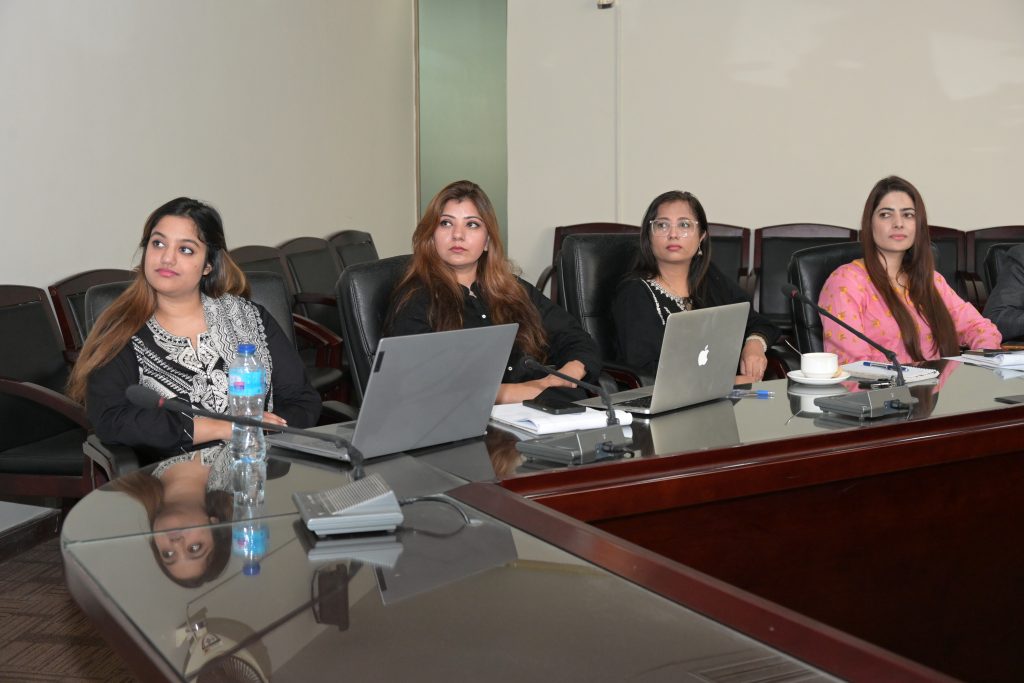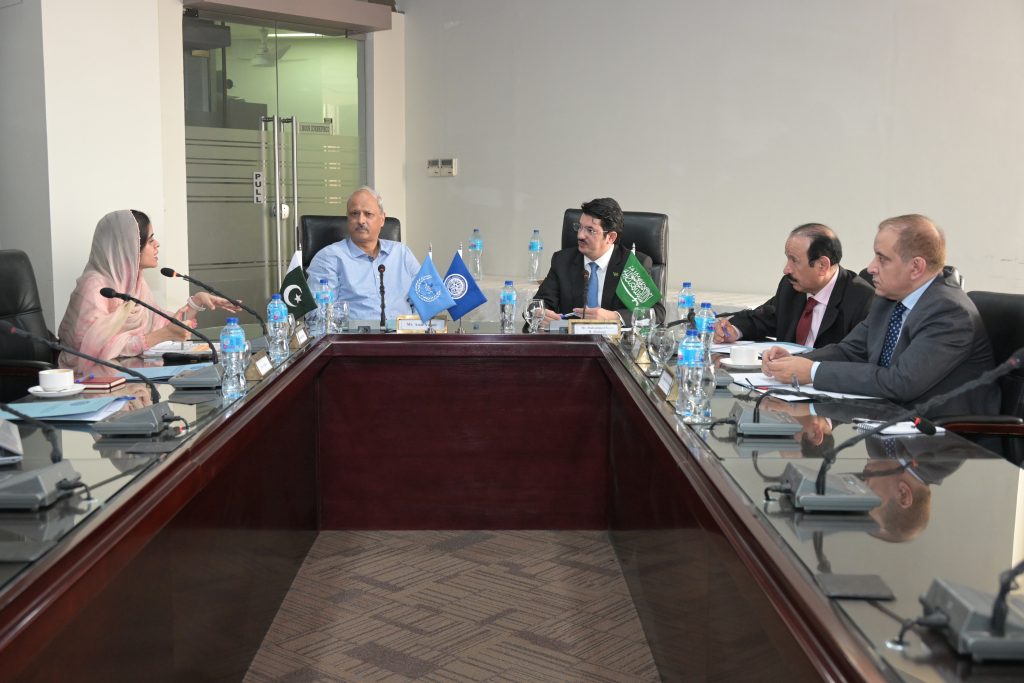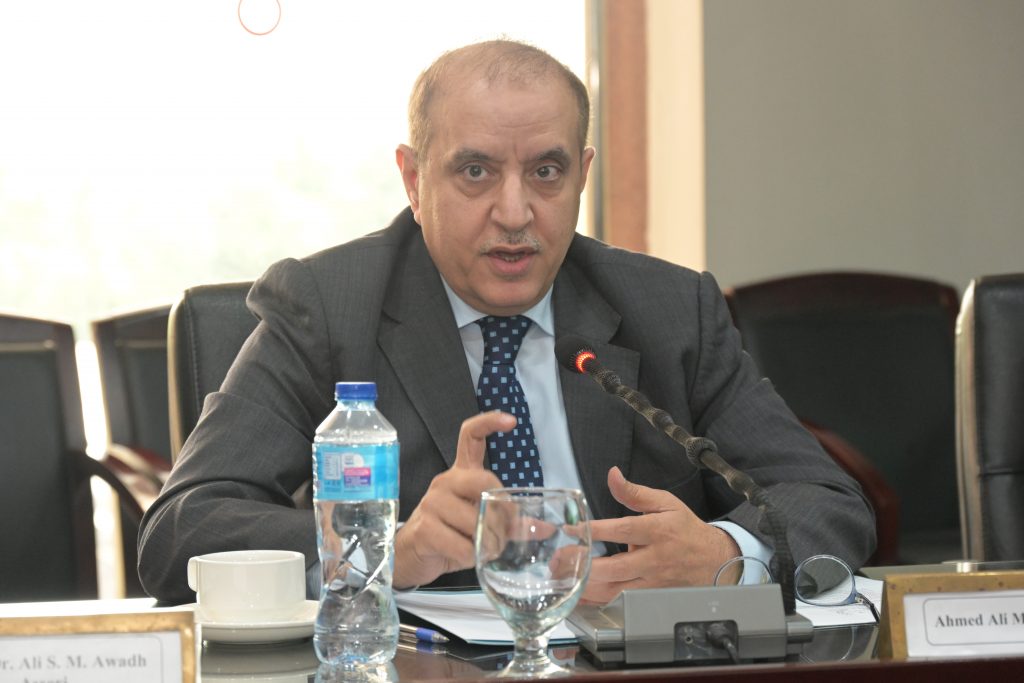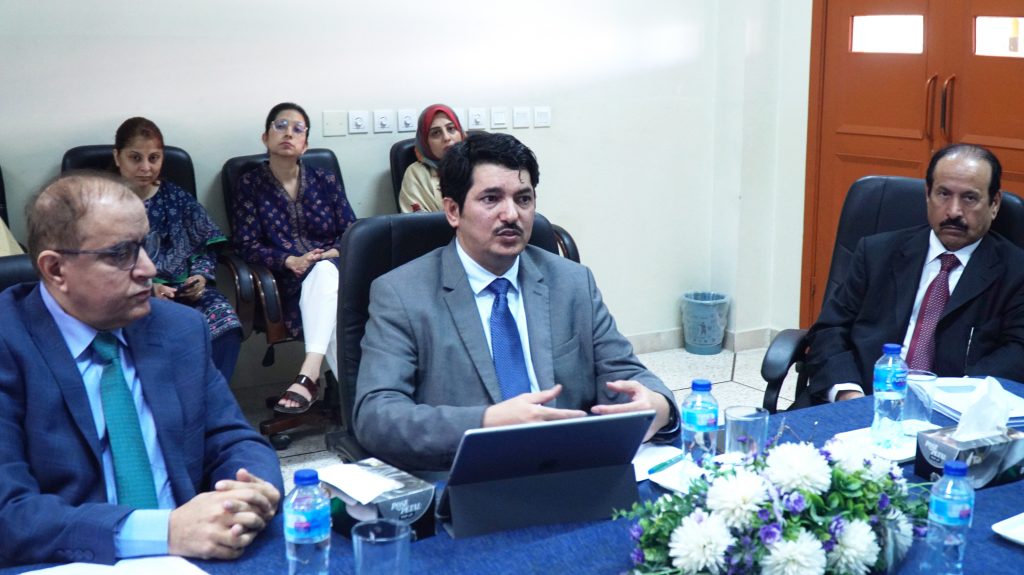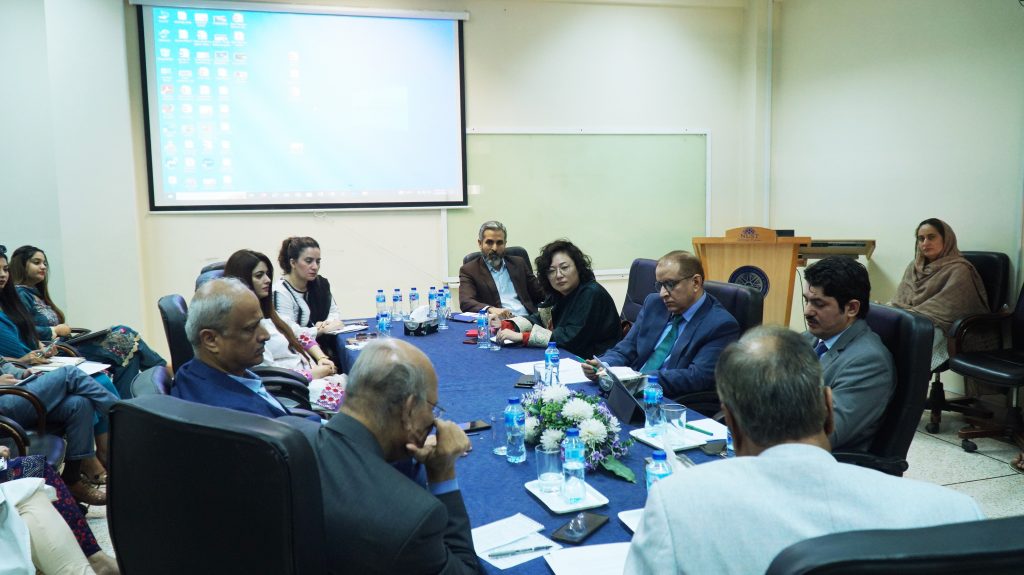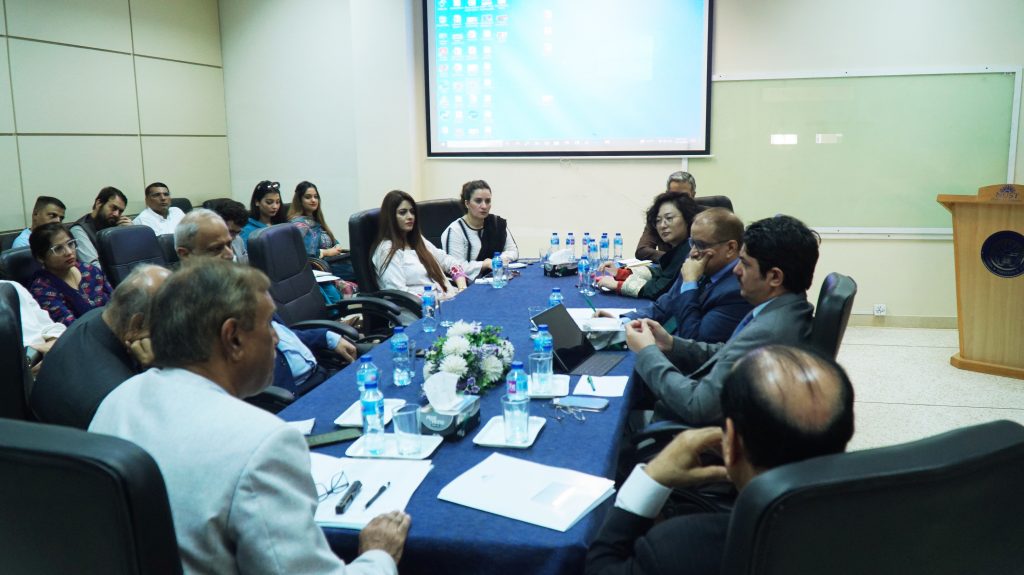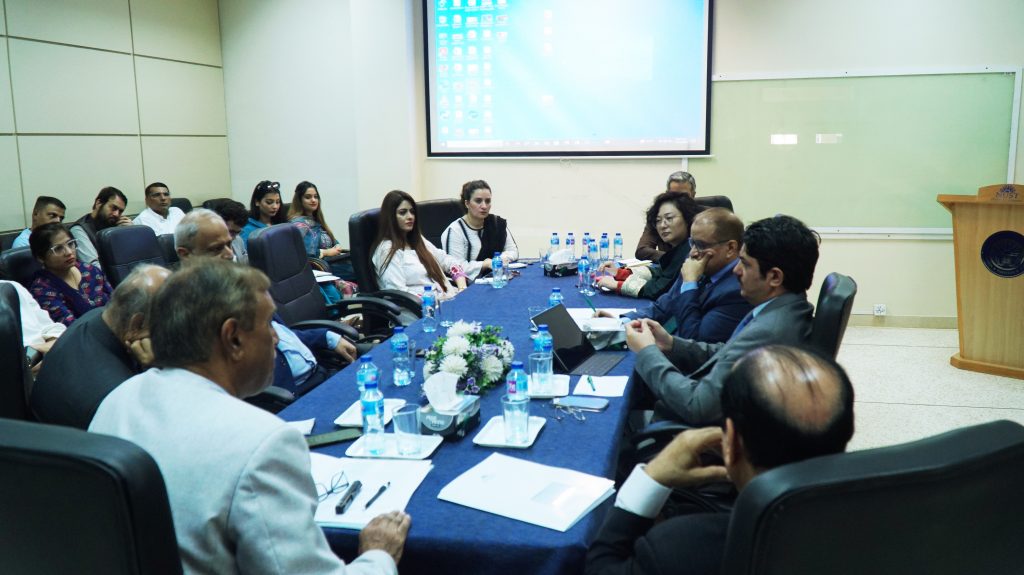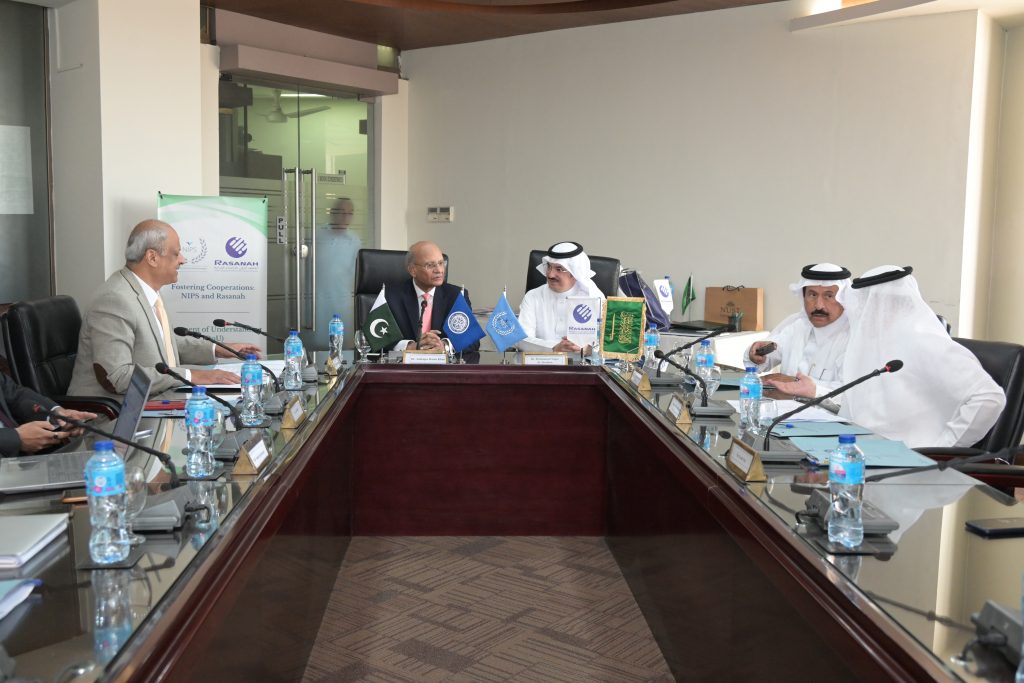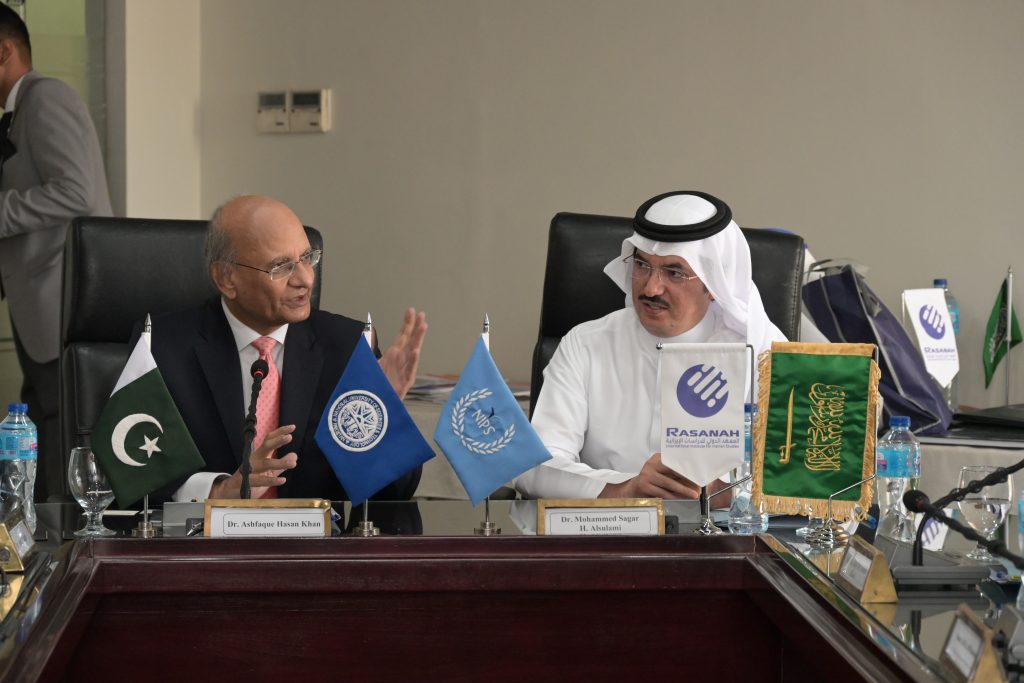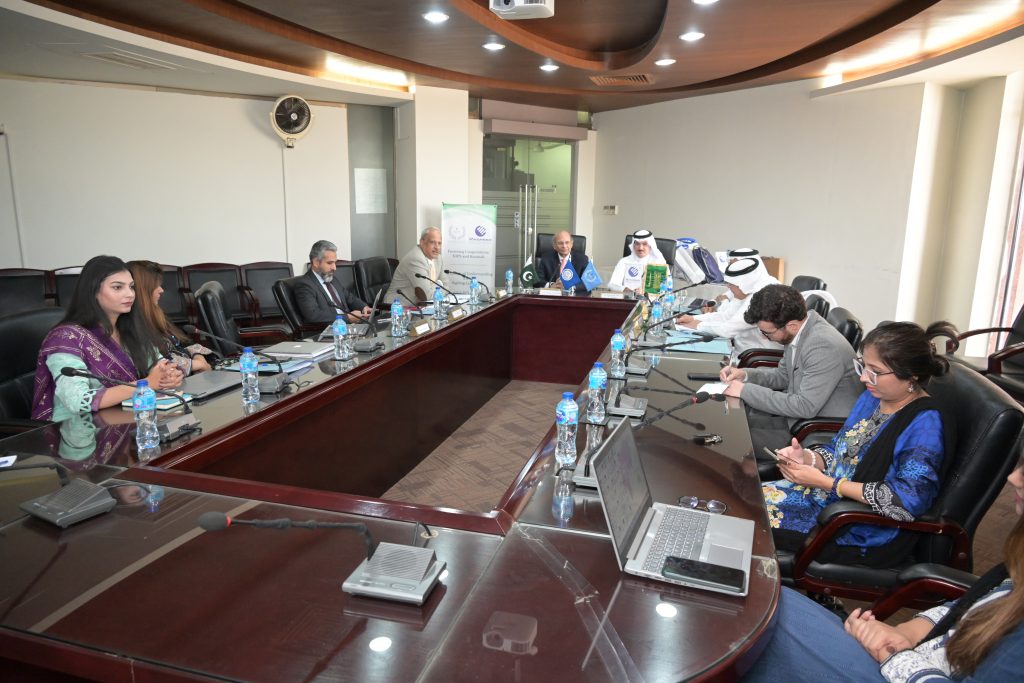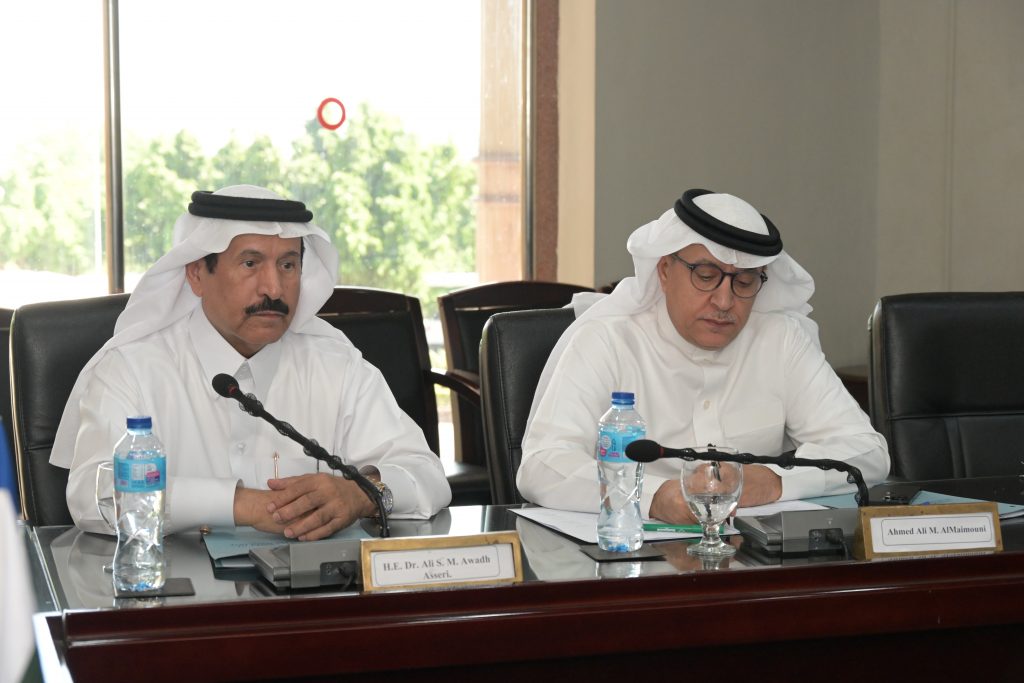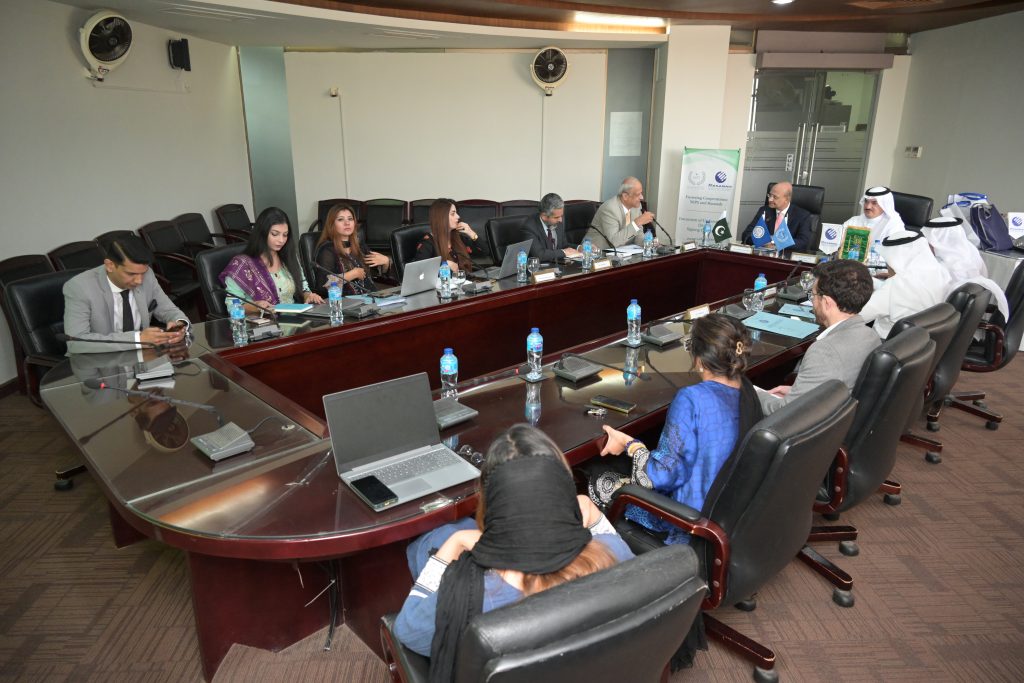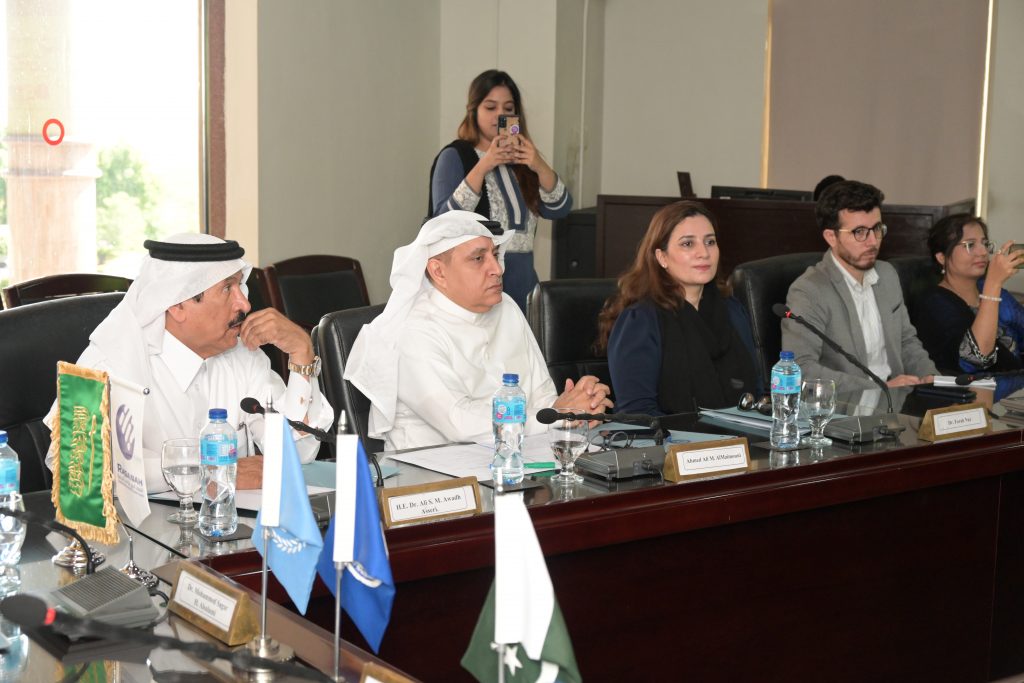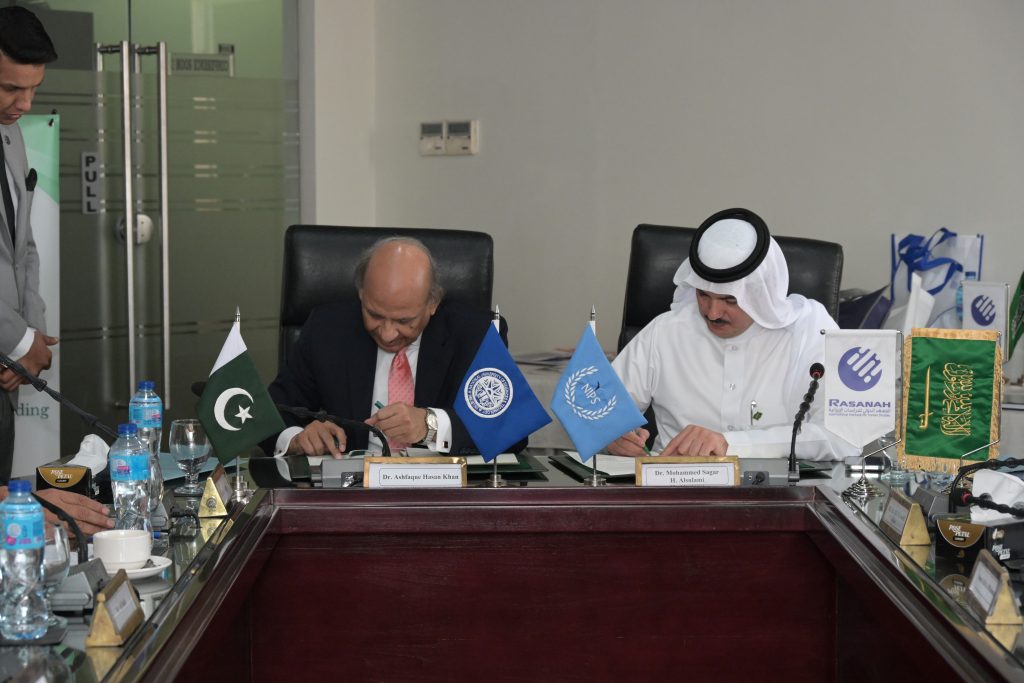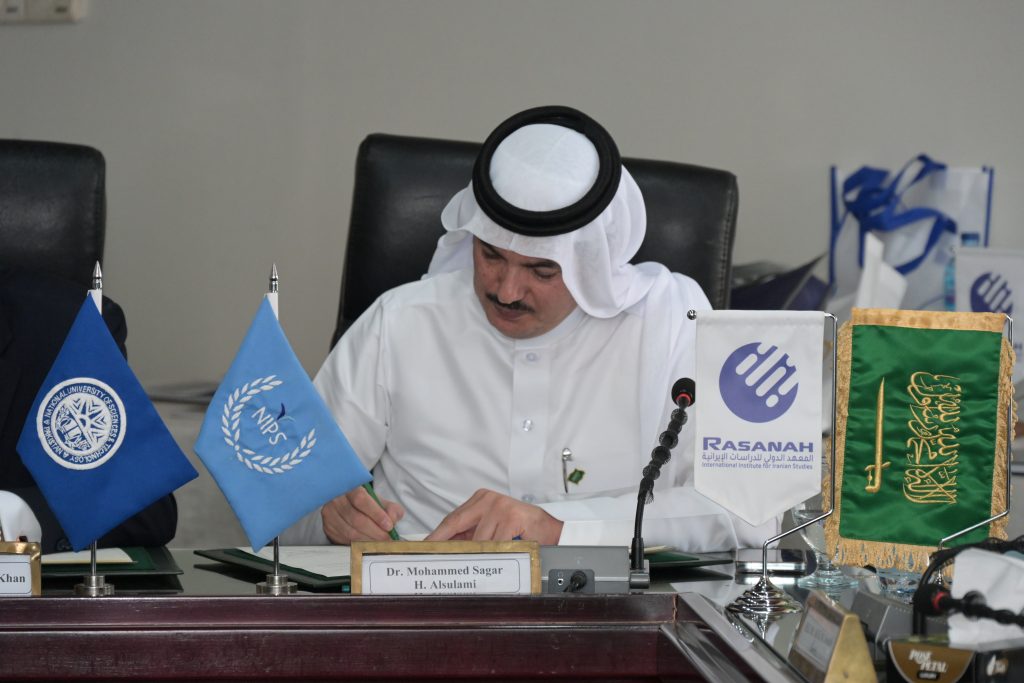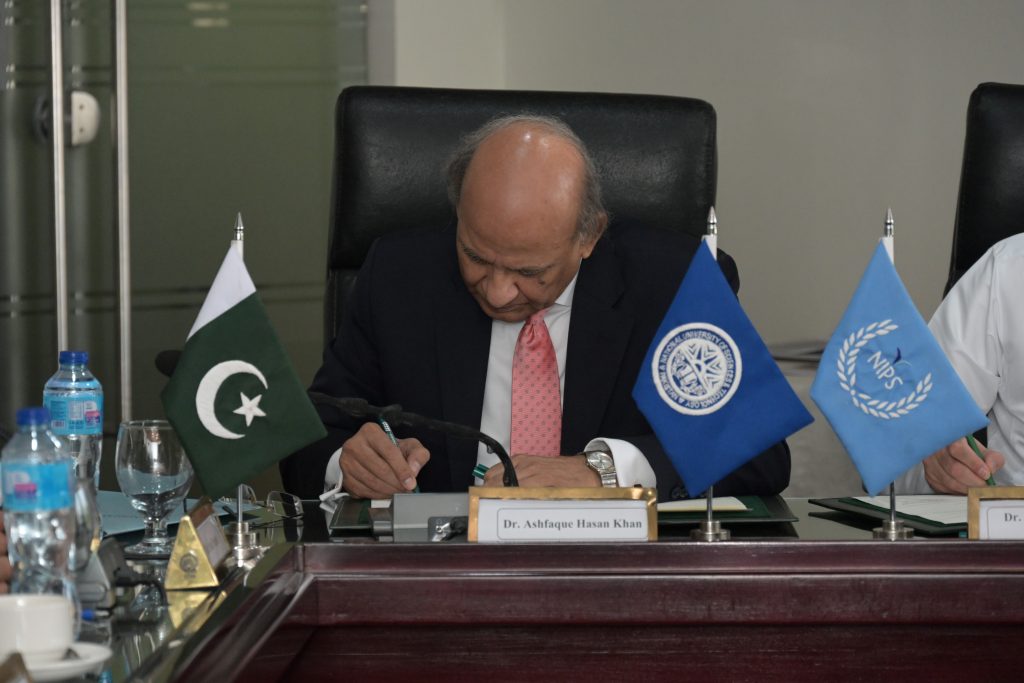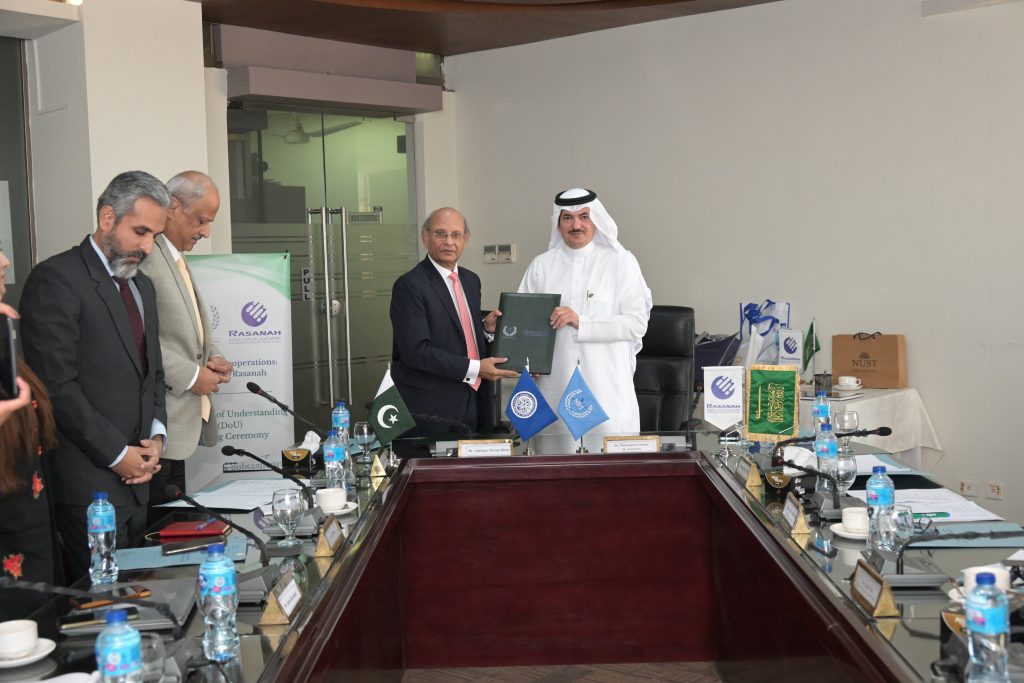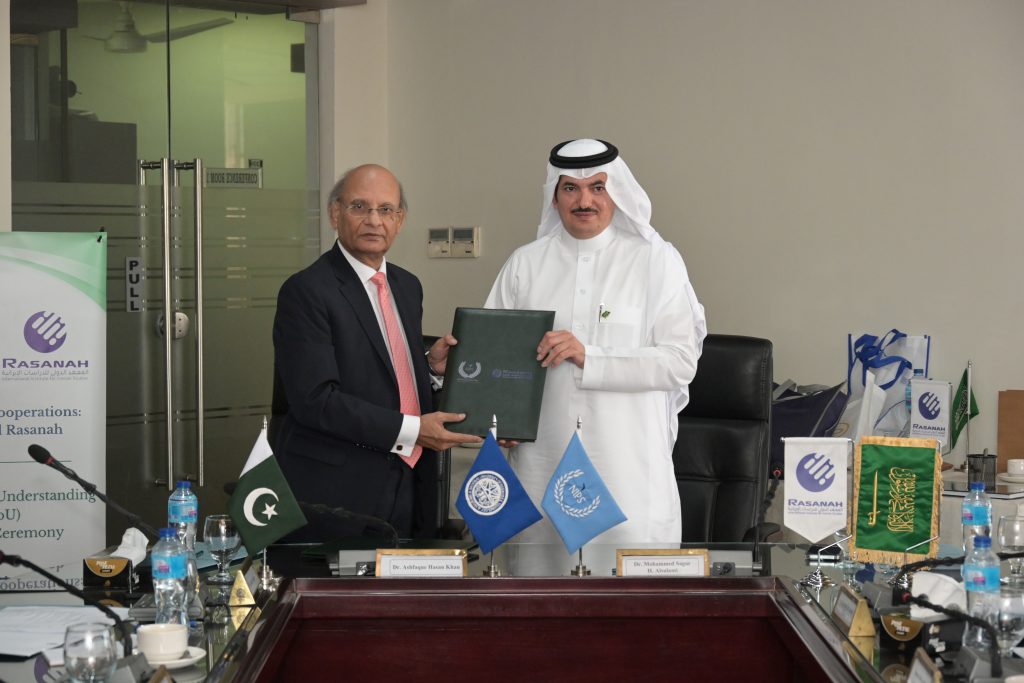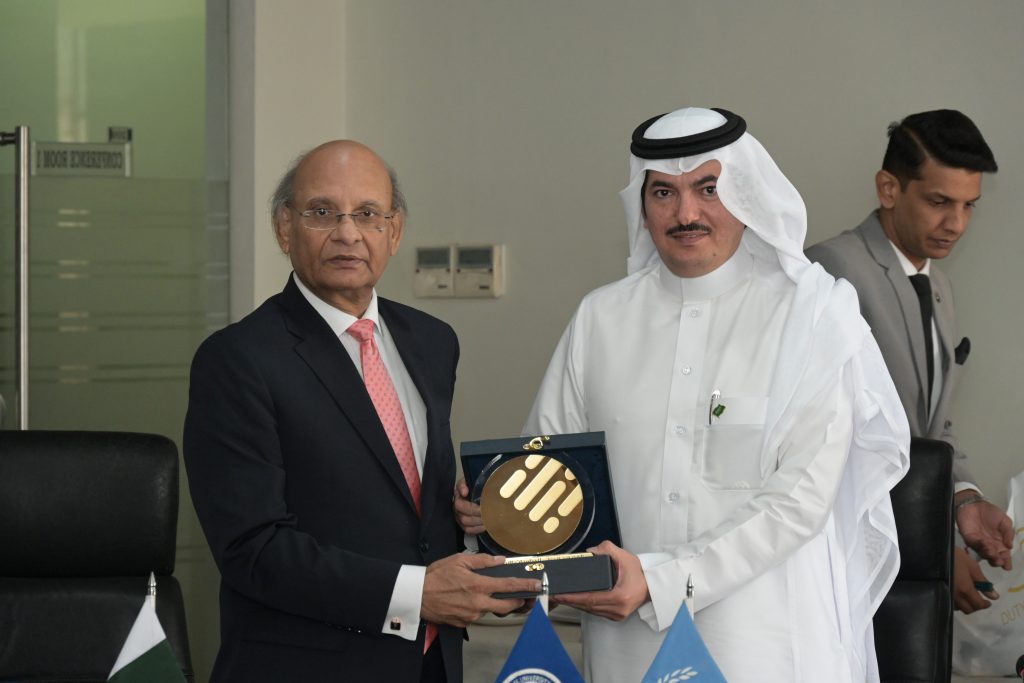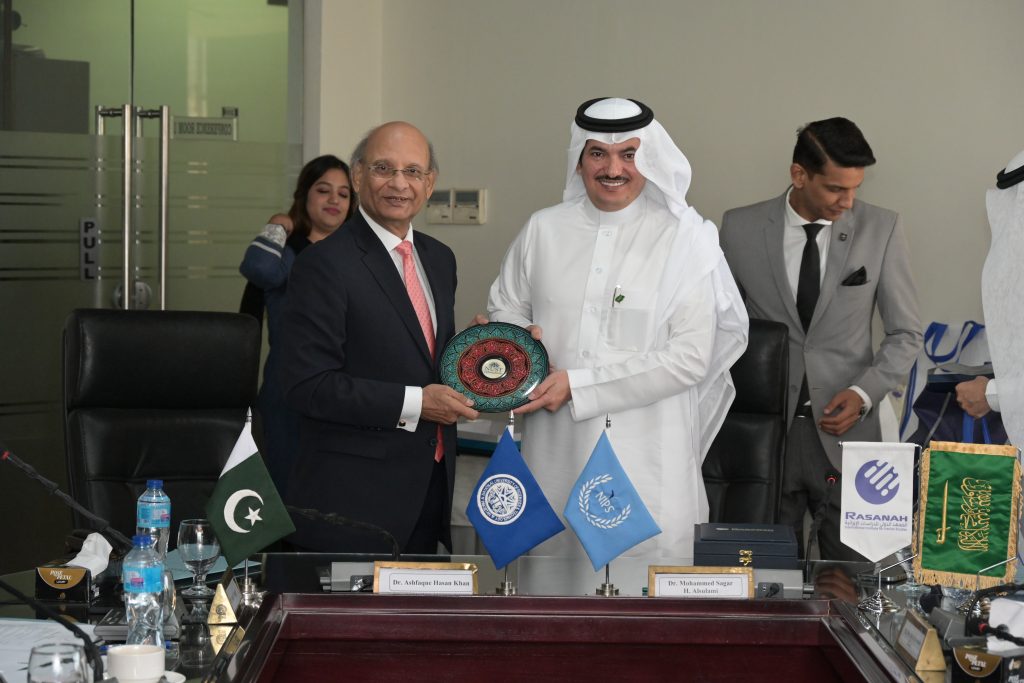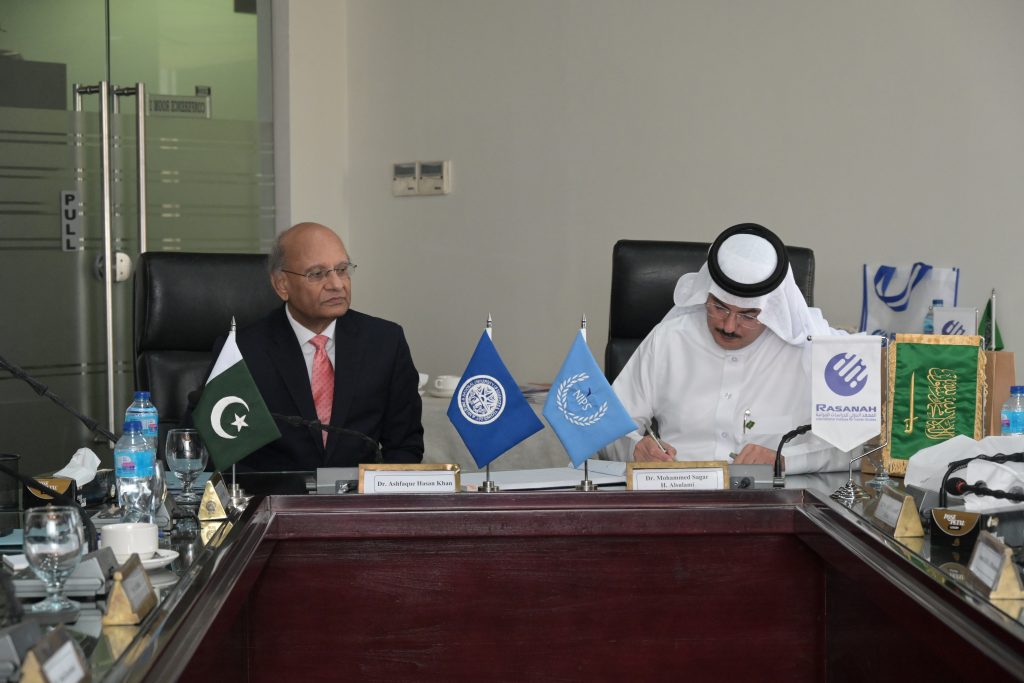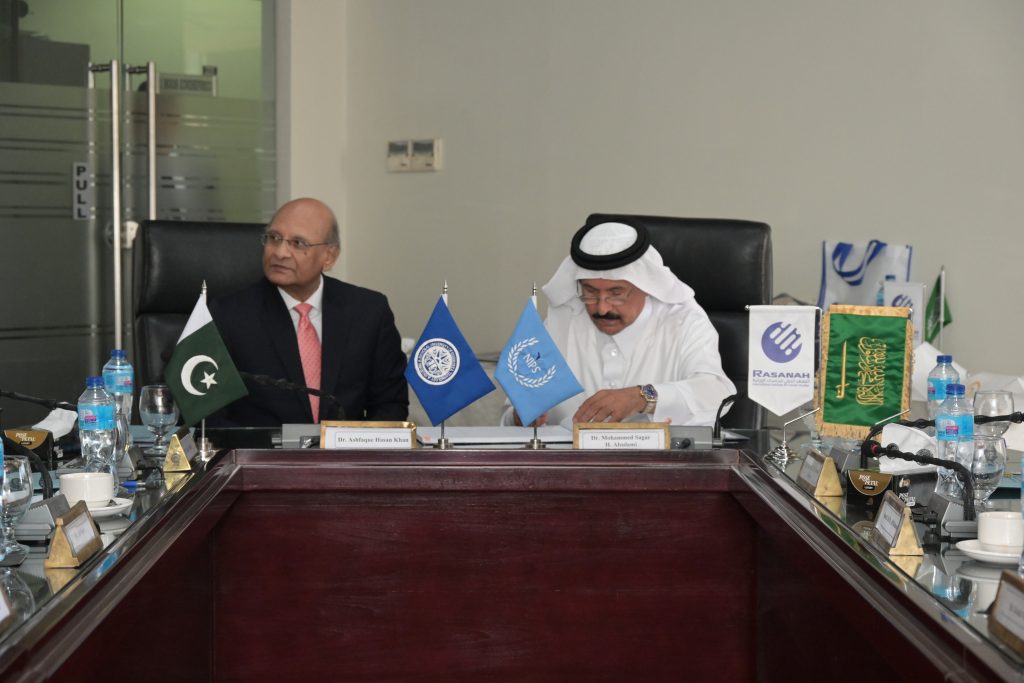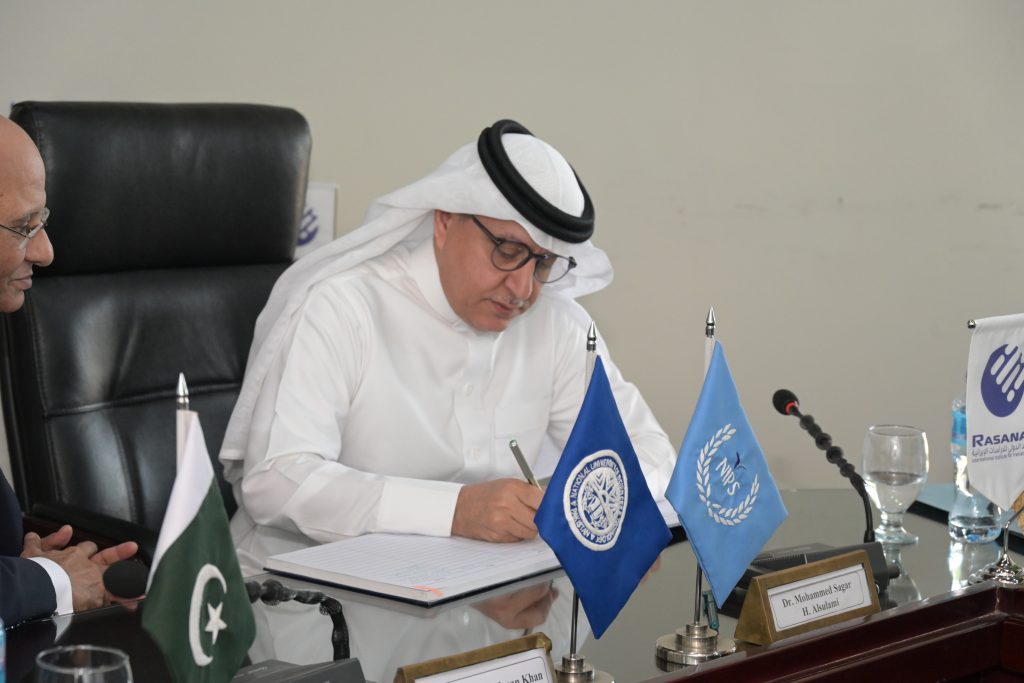Rasanah (the International Institute for Iranian Studies) visited the NUST Institute of Policy Studies (NIPS), for a three-day visit from October 9 till 11, 2023. The delegation comprised Founder and President of Rasanah Dr. Mohammed Alsulami, Board Member of Rasanah and Saudi Arabia’s former ambassador to Pakistan H.E. Dr. Ali Awadh Asseri, Director of Rasanah’s Research and Studies Center and Retired Maj. Gen. Ahmed al-Maimouni.
The visit consisted of a series of focused interactions with NUST leadership, think tank experts, faculty, and students. In the delegation’s meeting with Mr. Abid Ejaz Kahloon, Pro-Rector Planning & Resources, NUST, senior officials of NUST and Rasanah shared the strategic overview of their institutions and highlighted the significance of sustained and targeted mutual collaboration.
NIPS and Rasanah signed the cooperation agreement outlining areas of mutual interest as well as types, forms, and patterns of collaborative activities.
Dr. Alsulami, President Rasanah, and Dr. Ashfaque Hassan Khan, Director General NIPS, stated that both think tanks were committed to developing a concrete program of collaboration.
During their visit, the delegation participated in an intensive roundtable on fostering comprehensive Pak-Saudi cooperation with the faculty of the NUST School of Social Sciences and Humanities (S3H) and NIPS experts.
Speaking on the occasion, Dr. Ali S. M. Awadh Asseri, Rasanah’s Board Member and Saudi Arabia’s former ambassador to Pakistan, expressed his fondness for Pakistan and highlighted the country’s immense development potential. Dr. Asseri stated that Saudi Arabia is undergoing rapid transformation which has exponentially increased the avenues of potential Pak-Saudi cooperation that would be beneficial for Pakistan’s progress, if there is timely identification and organized approach from the Pakistani side.
Dr. Mohammed Alsulami, Rasanah’s Founder and President, outlined the strategic development priorities under the visionary leadership of His Highness Mohammed bin Salman Al Saud, Crown Prince and Prime Minister, Kingdom of Saudi Arabia. He said that these priorities included efforts to promote regional and global peace and stability, win-win bilateral and multilateral cooperation, high-quality central leadership, participation of women in development, smart industrialization, sustainable urbanization, quality multimodal infrastructure development, innovation-based development, regional connectivity, data-driven governance, and higher education internalization.
Rasanah’s President stated that there is a great appetite for peace, progress, and growth in the region and Saudi Arabia was ready to fully leverage its influence and capabilities for supporting and intensifying the positive drivers of domestic and regional prosperity. Referring to the Saudi-Iranian normalization and the latest episode of Palestinian-Israeli conflict, Dr. Alsulami stressed that Saudi Arabia is committed to serious diplomatic efforts for ending conflicts in the region and promoting good neighborliness.
Dr. Ashfaque Hasan Khan, Director General NIPS, stressed the increased salience of geoeconomics as a global response to ongoing conflicts. He expressed his belief that Saudi Arabia is poised to become a leading geoeconomic actor in the region in the days to come.
Dr. Zafar Mahmood, Principal, NUST School of Social Sciences and Humanities, stated that there is an urgent need to focus on enhancing Pak-Saudi higher education cooperation, because this cooperation, Dr Mehmood said, would ultimately provide the knowhow and human resources for both comprehensive domestic development of both countries as well as long-term bilateral cooperation.
Maimouni, Rasanah’s Research Director, stressed that any foreign, institutional, private, or public party interested in working with Saudi Arabia at any level should clearly understand and leverage the pillars, programs, and projects outlined in the Saudi Vision 2030. Maimouni believes this understanding is essential in the strategic and operational mapping and signposting of collaboration with Saudi counterparts.
Mr. Amir Yaqub, Director, Operations and Collaboration, NIPS, stressed the importance of defense industry indigenization as one of the key areas which would accelerate and consolidate the rise of Saudi Arabia as a major power in the contemporary interstate system.
The roundtable also discussed the importance of Saudi-Iranian normalization, women’s empowerment, e-governance, technical and vocational education, human development, social development, tourism, and inclusive multilateralism for Pak-Saudi cooperation.
Two of the many highlights of the visit proved to be the tour of the key R&D facilities of the NUST knowledge ecosystem and the memorable coffee meeting of the delegation with Saudi officers undergoing training at NUST’s Center for International Peace and Stability (CIPS).
It is worth to mention that NUST is ranked 355 in the world and number one in Pakistan according to QS World University Rankings.
